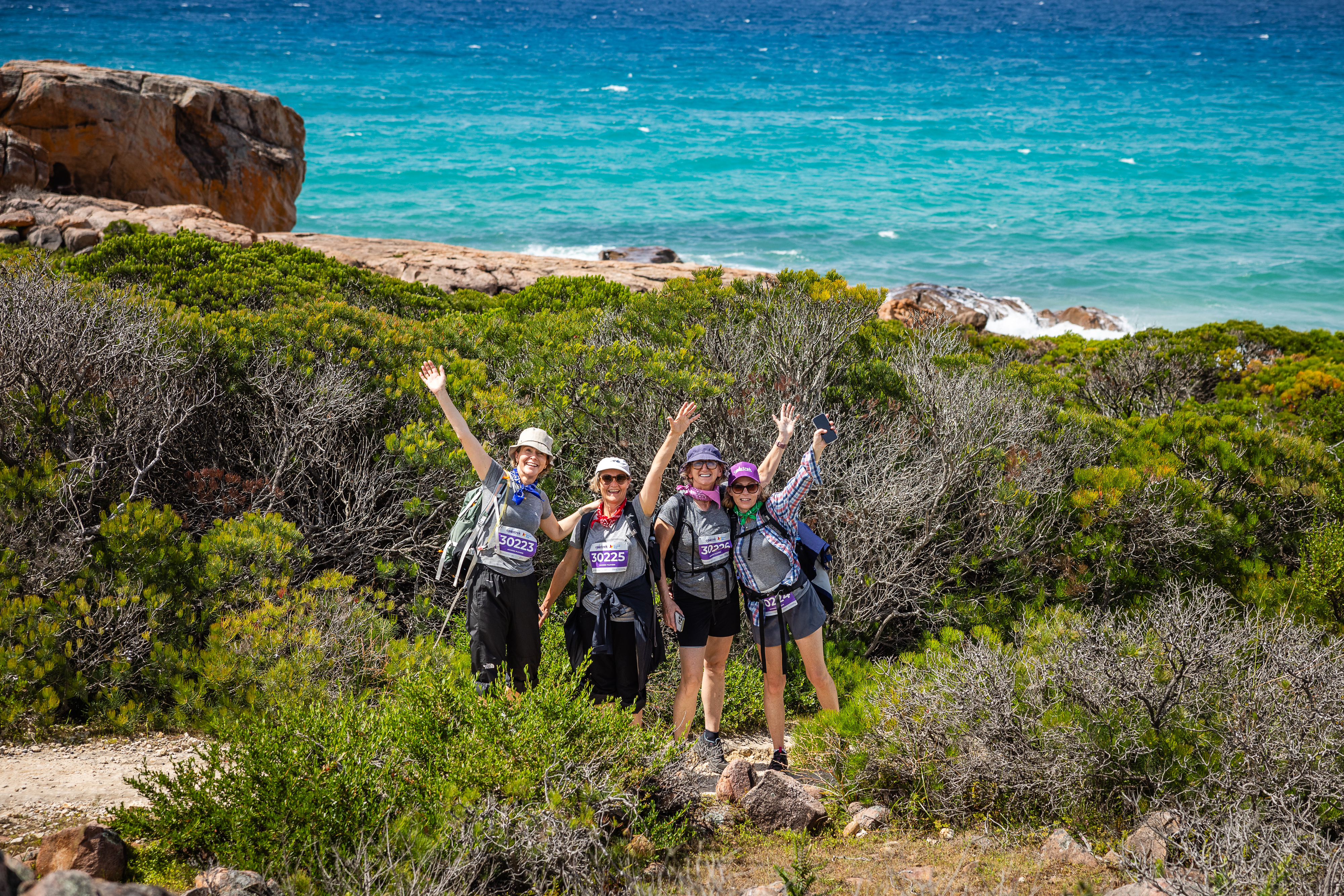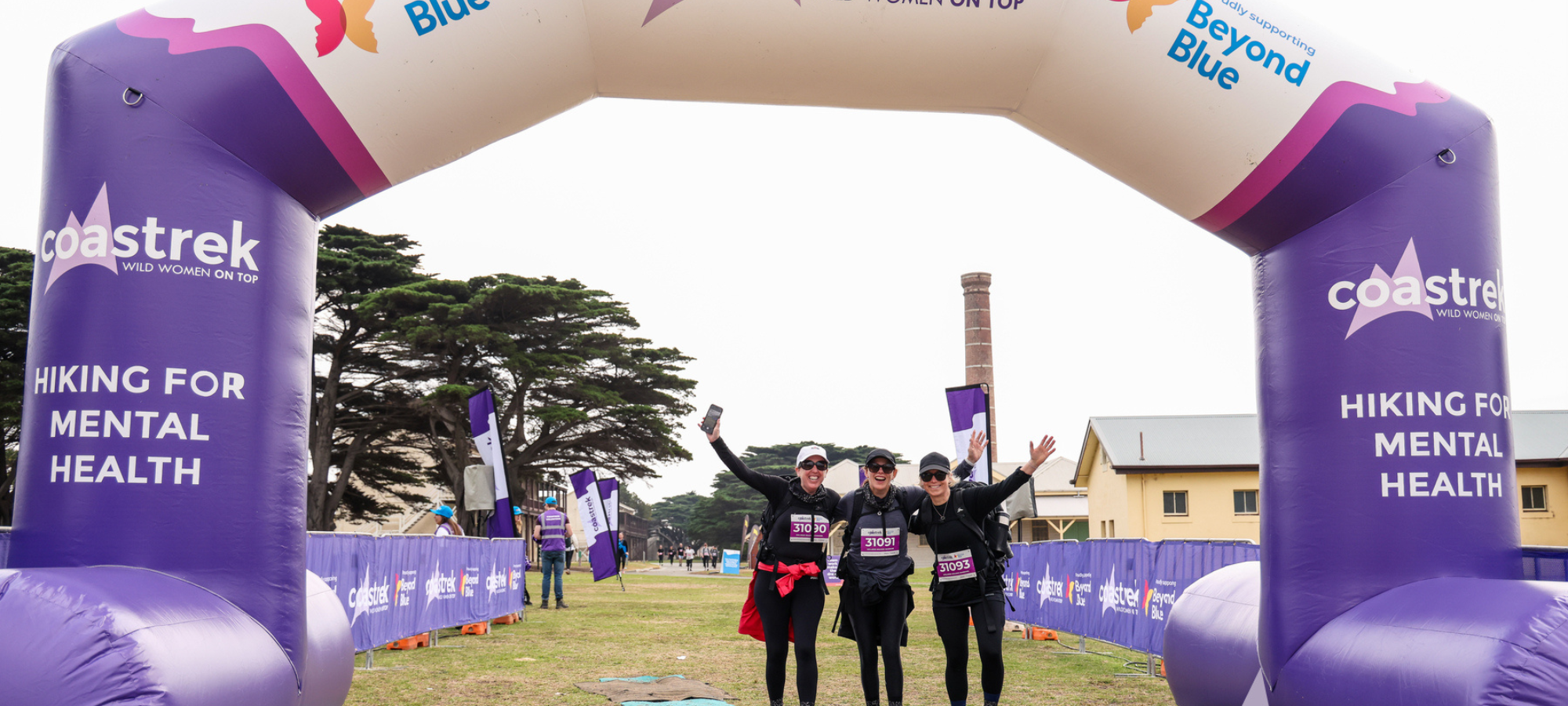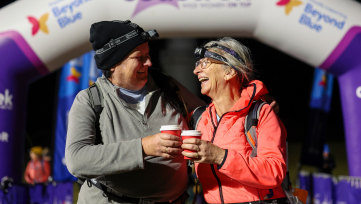You've rallied your crew, registered your team and now you’re in the prep-phase for Coastrek. High on the planning list – what snacks to pack? Cailie Ford is the Head Nutritionist for our friends at Good & Fugly, a fruit & veg delivery service on a mission to reduce food waste.
To keep you feeling fuelled and strong for the entire day, here is Cailie’s advice for what to eat before and during Coastrek.
The Day Before
Coastrek is an endurance event, so what you eat and drink the day before is just as important as the snacks you pack for the day. If you’re planning to ‘carb-load’, opt for slow-releasing carbohydrates like whole grain rice or paste, beans, and starchy vegetables like pumpkin or potatoes. Don’t overdo it, though! While getting enough carbohydrates is important for your energy-levels, consuming too many carbs the day before can make you feel sluggish on the morning of.
Drink plenty of water the day before your trek too. Staying well hydrated will ensure you feel fresh and energised as soon as you wake up – ready to tackle the challenge ahead!
Event-Day Sustenance
Eating on Event Day is very different to eating on a normal day. Walking is low-intensity, but you're going a long way, so you need sustained energy that doesn't weight you down.
Your snack bag should include items with a good balance of carbs and protein but low in fat. Nibble on snacks like homemade bliss bars, scroggin, natural peanut butter and banana sandwiches (cut into quarters), roast veggie wraps cut into snack sized servings, roasted chickpeas or Wild Women On Top chocolate chip cookies. Protein will keep you feeling satiated and while the carbs will give you fast fuel.
An occasional jelly snake or muffin is fine (and can sometimes be exactly what you need when you're flagging), but it's best to swap lollies and chips for fresh or dried fruit like bananas, grapes, apples, apricots, or even cut up veggies such as capsicum and carrot.
When to Eat
Notice a lack of ‘meal’-style foods on the packing list? For a day-long trek it’s better to snack on nutritious food every hour or so, rather than stopping for a bigger lunch. Not only is it much easier (and lighter) to pack smaller items, but regular snacking will keep your energy levels up and consistent for the duration of the hike. The digestive system needs more energy to digest bigger meals, which is why you sometimes feel tired after a big lunch – not ideal halfway through a 50km trek!
Listen to your hunger cues and don’t force food, but keep your hydration up - if you notice you’re thirsty, you’re already a little dehydrated, so keep sipping as you walk.
Be Waste Conscious
Getting away from our screens to experience Australia’s beautiful landscapes on a trek can do wonders for physical and mental health. And just as nature takes care of us, we need to take care of it too! Avoid bringing food that comes with lots of packaging on the trek – and if you must, make sure wrappers and foil are binned or taken home with you.
But it’s not just packaging that harms the environment. Food waste is a big environmental concern, responsible for more greenhouse gas emissions than the airline industry! If you know you won’t eat a squashed banana or a backpack-bruised nectarine – don’t pack them. Uneaten food directly contributes to the climate crisis at every stage from growing and production to decomposition in landfill. While small businesses like Good & Fugly do their part to rescue ‘ugly’ produce directly from farmers, everyone – including Coastrekkers – have a role to play in reducing food waste!
Good & Fugly, a fruit & veg delivery service on a mission to reduce food waste. You can check out their amazing produce here.






